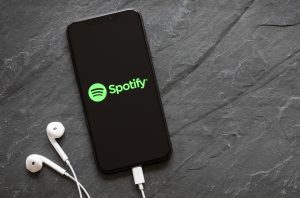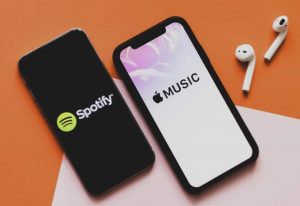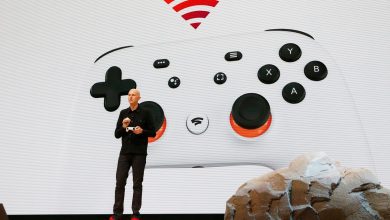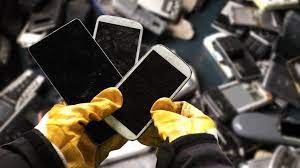Spotify alleges Apple’s audiobook store is ‘choking competition’

Spotify claims that Apple is making it more difficult to sell audiobooks, which it only launched last month. In a blog post released immediately before the business’s earnings report on Tuesday, the company dubbed Apple’s tactics “anticompetitive” and said it was “choking competition.”

Spotify claims that Apple’s regulations make purchasing an audiobook on Spotify “far too complicated and unclear,” and that Apple “changes its rules arbitrarily, making them impossible to grasp.” Apple takes up to a 30% commission on purchases made in App Store apps, and certain developers are prohibited from using or sending consumers to an external payment processor.
Spotify CEO Daniel Ek: “Apple has shown time and again that it will not self-regulate and has no real incentive to change”
According to a webpage Spotify created particularly to promote its point, the business claims Apple rejected its suggested audiobook purchasing method three times because it violated App Store standards.
According to Adam Dema, an Apple spokesperson, Spotify’s app was “rejected for not following the guidelines regarding including explicit in-app communications to direct users outside the app to make digital purchases,” but Apple has “no issue with reader apps adding audiobook content to their apps, linking users out to websites to sign up for services, or communicating with customers externally about digital purchases.”
Spotify hides the price of its audiobooks and does not allow customers to buy content in the app to comply with Apple’s guidelines. Instead, you choose the book you wish to purchase, and Spotify sends you an email with a link to purchase it online. This makes it more difficult to compare costs, which you only learn about by email. According to Spotify, this procedure “harms not only consumers, but also authors and publishers who are now under Apple’s grasp.” The process of purchasing an audiobook, as my colleague Ariel Shapiro pointed out in a recent issue of Hot Pod Insider, “is not the most graceful.”

This is not the first time Spotify has made a dig at Apple. In 2019, the music streaming service launched an antitrust complaint against Apple in Europe, saying that the company’s 30% “Apple tax” is limiting consumer choice.
“In the absence of government involvement — in Europe, the United States, or any other market across the world — Apple has repeatedly demonstrated that it will not self-regulate and has no genuine reason to change,” Spotify CEO Daniel Ek said today in a statement. “With the launch of our Audiobooks, Apple has once again demonstrated how daring it is ready to be with its App Store guidelines, consistently changing the goalposts to disadvantage competitors.”
While Spotify might make purchasing audiobooks easier by leveraging Apple’s in-app purchase mechanism, each transaction would be subject to Apple’s up to 30% commission. It would also make competing with Apple Books more difficult for Spotify.
In response, Apple spokesperson Adam Dema issued the following comment to The Verge:
The App Store was designed to be a great business opportunity for developers, and we fully support initiatives to introduce new features in apps that provide lasting value for users.
We have no issue with reader apps adding audiobook content to their apps, linking users out to websites to sign up for services, or communicating with customers externally about alternative purchase options. The Spotify app was rejected for not following the guidelines regarding including explicit in-app communications to direct users outside the app to make digital purchases. We provided them with clear guidance on how to resolve the issue, and approved their app after they made changes that brought it into compliance.
Join our 100,000+ members and never miss our members’ exclusive Breaking News and Entertainment Gist.
Gain Access to Our Private News Room
Popular stories right now
- Apple has confirmed that the iPhone will support USB-C.
- 20 million people have utilized Xbox Cloud Gaming, says Microsoft.
- Nomad’s bringing back the early 2000s with a transparent charging brick







